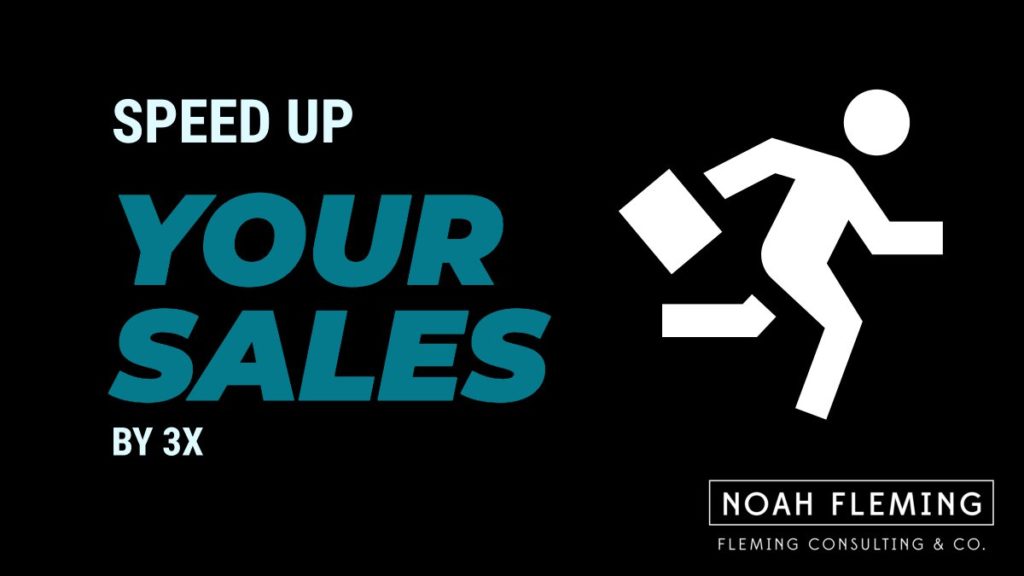I went to buy some new running shoes last week.
While I was looking at the big wall of options, I realized that I had no idea what I wanted. I knew I liked the last pair I bought, but I'd even forgotten exactly what those were.
I somewhat sheepishly told the salesperson I wanted something like what I'd bought last time, but I couldn't quite remember what it was.
She asked me if I'd bought from that chain of stores, and yes, I had!
So she looked me up in their system and was able to tell me that while the model I had bought last time wasn't in, there were two newer models in the same product line.
She saw my shoe size and noted that the newer model fit a bit "small", so she brought me a pair a half size higher than my previous purchase.
I tried them on and was thrilled.
They fit perfectly and were even more comfortable than my last pair.
I bought them on the spot.
The whole process (including trying on the shoes she brought me) took under five minutes. This sale was easily 3X faster than the last time I bought shoes with them.
It's a small story, but there are a lot of things going on right here.
- They are using tools like a CRM to keep track of all their customers & purchases.
- They can immediately see what stock they have in store, and how new stock relates to product lines purchased by customers.
- They have notes in the new models about how they relate to older models so that the salesperson can make the best judgment on a recommendation.
- The salespeople had been trained to actually use all the information in the CRM to create a better customer experience.
- Since this is a retail transaction, the ability to triple the transaction speed dramatically enhances the strength of the staff to pay attention to all the customers – it's essentially allowed them to triple their service capacity for repeat customers. It allows them to spend more time with new customers.
I loved this interaction because it's a great reminder that sales processes don't have to be complicated. They don't have to be a pain. They make things easier for the salesperson, and more importantly, for the customer.
So, the challenge for this week is simple.
Just answer these questions honestly:
- Do you have a process to capture the sales data from your customers in a way that makes it easy to help them with their future purchases?
- If you do, are your salespeople following that process and ensuring they’re recording the most pertinent information to make the future relationship more valuable?
- If you do, are your salespeople reviewing that information regularly, and using it prior to every contact with a customer, to ensure they're able to make the best, most valuable recommendations?
By the way, this shoe chain story is applicable to ANY business, in ANY industry, selling ANY thing.
P.S. We are now booking 1-Day Sales Process™ sessions into 2020. I'm only scheduling a maximum of one of these per month. The best time to do this is right now. Ready to do everything I just mentioned (get more clients, keep existing clients, maximize your revenue?) Well, this is the best place to start. Go here to start the process.
